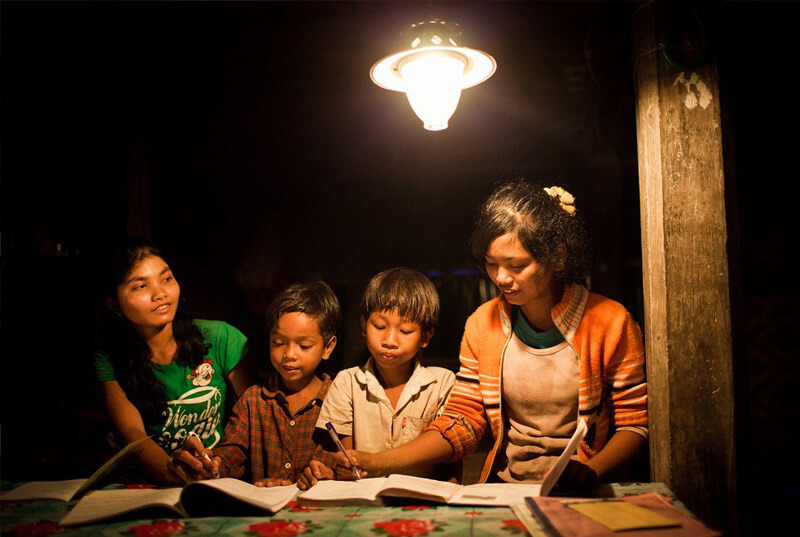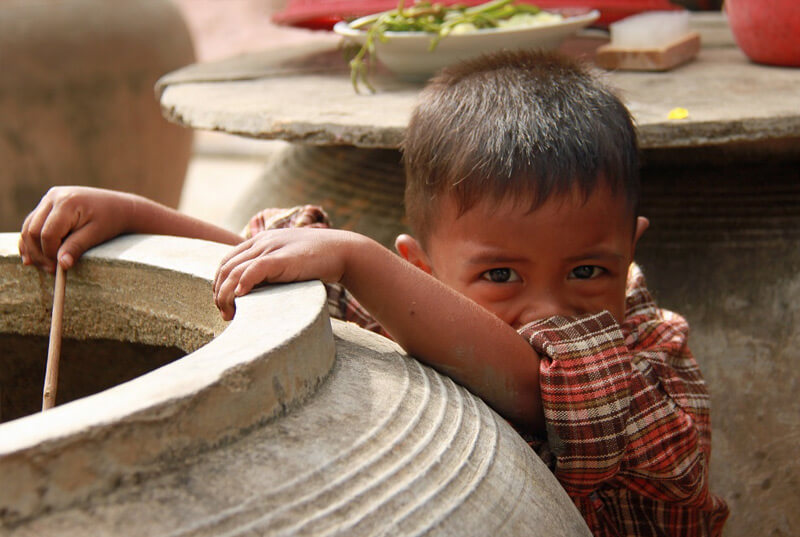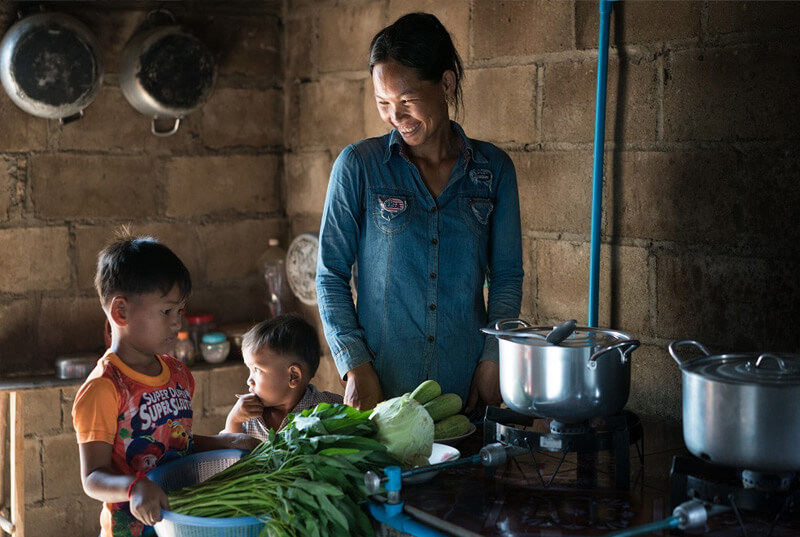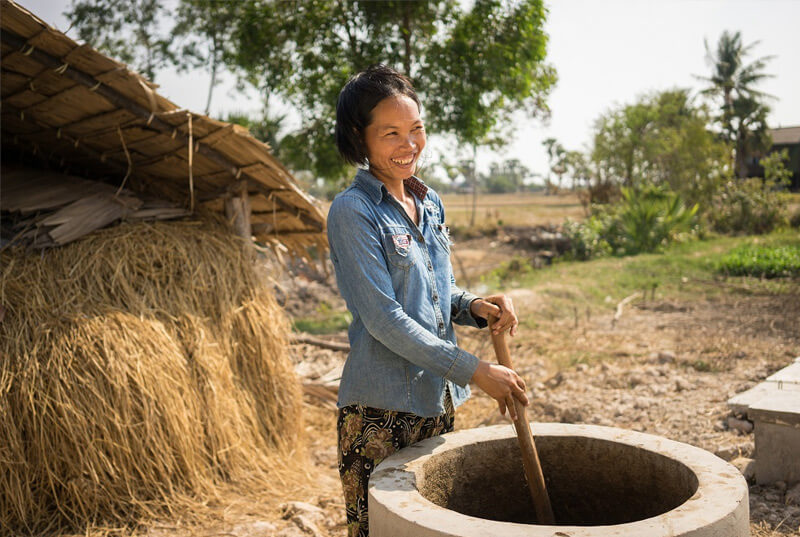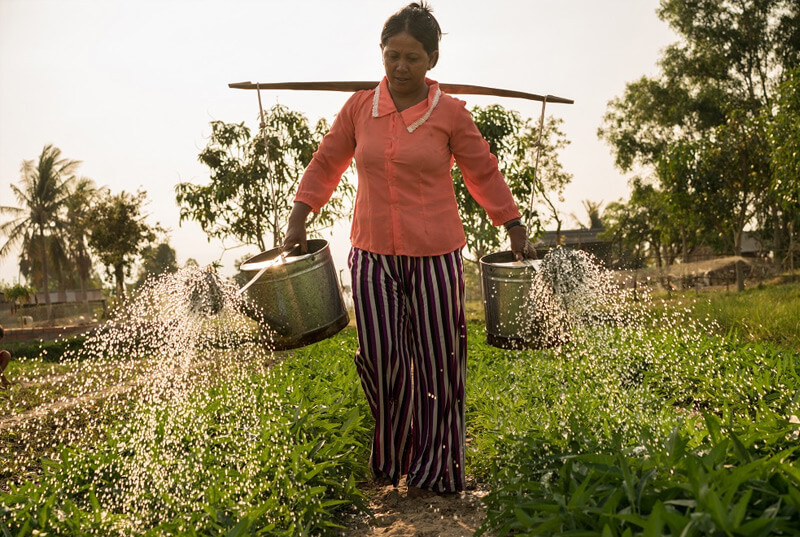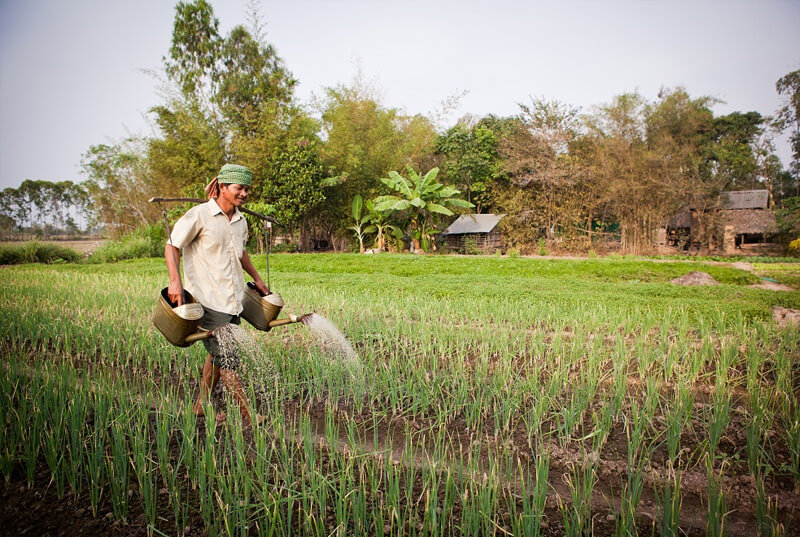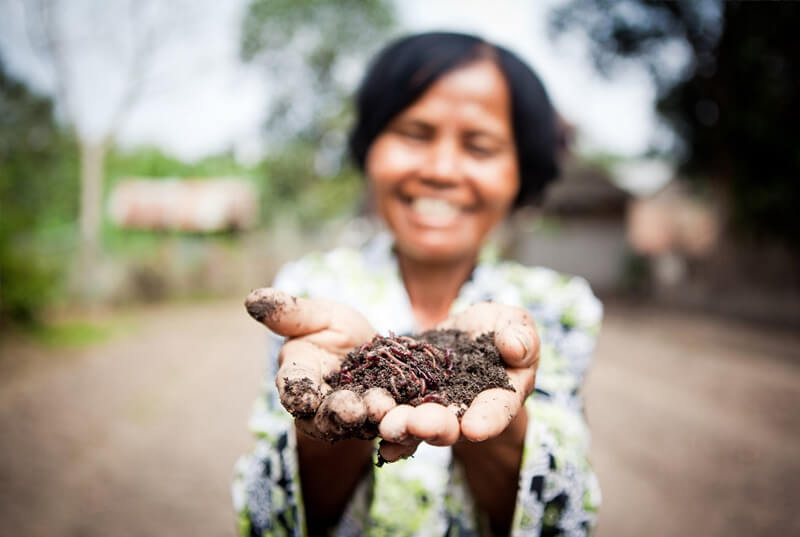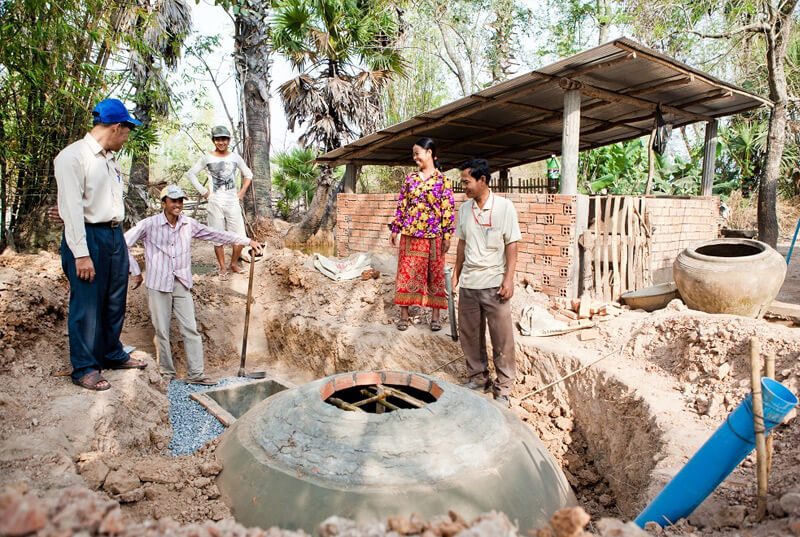Background
Many Cambodians in rural areas don’t have access to modern energy sources such as gas and electricity. They are therefore forced to prepare their meals on open wood fires. This is bad for people’s health, expensive, time-consuming, and harmful to the environment. Having a biogas installation can be a solution. A typical biogas installation requires about two cows to produce enough gas for lighting and cooking.
The project
This project makes biogas installations accessible to rural households in Cambodia. The systems are installed on the recipient’s land by local builders. Cow dung is collected in the installation, which digests it and turns it into biogas. After being piped into people’s homes, it can be used for cooking and lighting. The remaining bio-slurry serves as an organic fertiliser. A number of families have connected special biogas toilets to their systems, turning human waste into more gas.
Collaboration
The Hivos Foundation in collaboration with SNV the Netherlands has introduced biogas installations across Cambodia with The National Biodigester Programme (NBP). Climate Neutral Group is working together with Hivos in terms of the technical know-how and expertise to increase the number of deployed biogas installations. We are doing this by investing in the project through the purchase of carbon credits.
Local entrepreneurs are trained to build and maintain the biogas installations. We develop sustainable energy markets that ensure more and more low-income people and businesses at the Base of the Pyramid are gaining access to such solutions. The project carries a Gold Standard certification.



